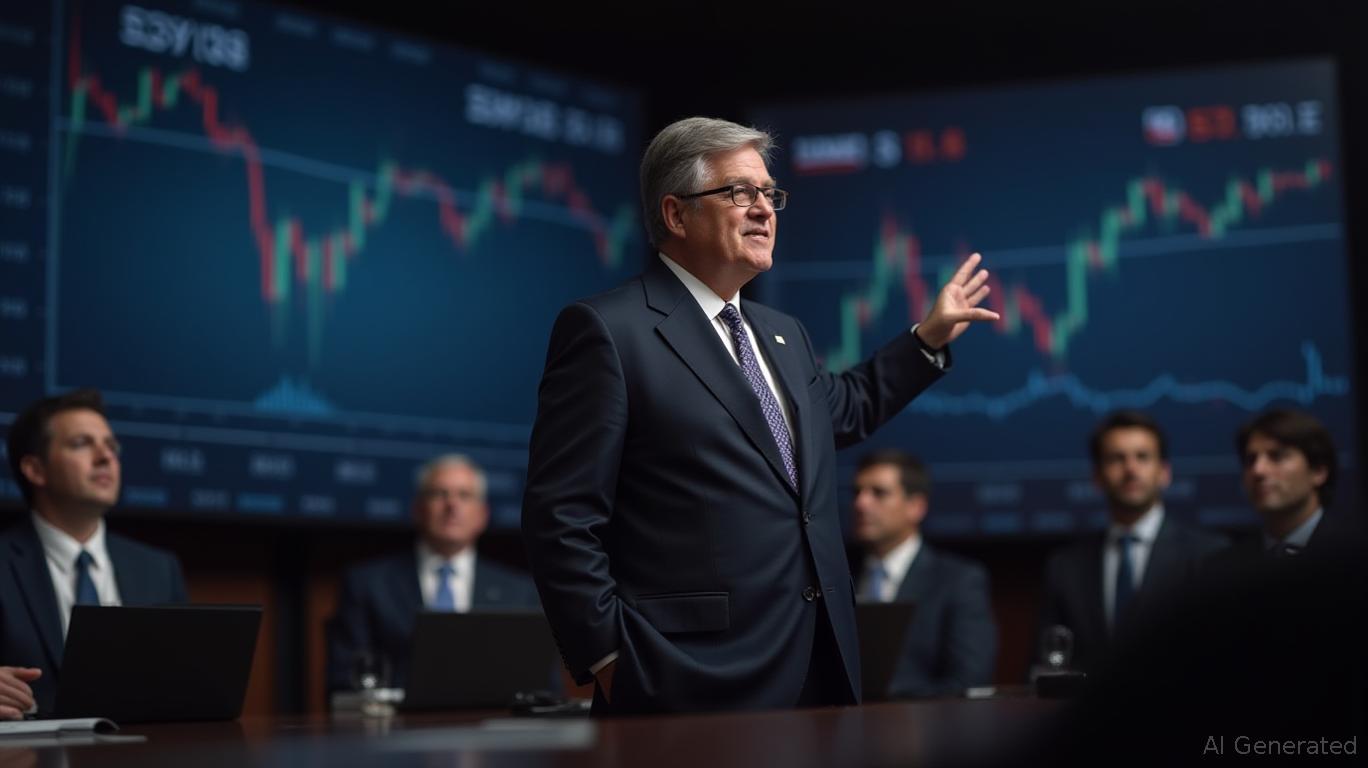Solana News Today: Solana's Tightrope Walk: ETF Investments, Price Fluctuations, and Regulatory Challenges
- Solana attracts institutional investors via ETF inflows, Hong Kong regulatory approvals, and the Alpenglow upgrade targeting validator cost cuts. - SSK ETF sees $24M weekly inflows, while Hong Kong's first Solana ETF launches October 27, expanding global institutional access. - SOL price rebounds to $195 but faces $200 resistance; analysts highlight $220 as a key breakout threshold for further gains. - Alpenglow aims to slash 80% of validator fees by 2026, enhancing decentralization through lower entry b
The

This week, the REX-Osprey Staking Solana ETF (SSK) recorded $24 million in net inflows, pushing its total managed assets above $400 million and ranking it among the largest altcoin ETFs on Wall Street. This momentum reflects growing institutional trust in Solana, with
SOL’s value has climbed back to
A pivotal upgrade for Solana’s future is the
In addition to institutional involvement, Solana’s on-chain metrics remain strong. The supply of stablecoins has increased by 14% over the past month to $15.6 billion, while decentralized exchanges on Solana processed $140 billion in trading volume, second only to Ethereum’s $148 billion. These numbers reinforce Solana’s position as a leading high-throughput platform in the Web3 space.
This week’s industry news also covered topics such as
Even though reports about the Genesis Wallet’s reactivation are still unconfirmed, the combination of ETF-driven demand, regulatory milestones, and technical improvements is setting Solana up for ongoing expansion. As the network gears up for the Alpenglow upgrade and faces increased institutional attention, its success will depend on maintaining both scalability and decentralization.
References
-
- ThinkCareBelieve: Week 40 of The Trump Presidency
- NFT Sales Plunge 42% to $93M,
- Crypto VC Funding: Coinbase Acquires Echo for $375M, Pave Bank Raises $39M
- Wintermute, YZi Labs Pile In as Crypto Startups Snag $100M This Week
- Bitwise Launches BSOL, First Spot Solana ETP in U.S.
- Solana Price Eyes 10% Gains Amid SOL ETF Launch Buzz
- Hong Kong Greenlights First Spot Solana ETF, Outpacing U.S.
- Marinade CEO: Solana Alpenglow Upgrade Could Reduce Validator Onboarding Barrier
- Revolutionary Solana Alpenglow Upgrade Set to Transform Validator Costs This Year
Disclaimer: The content of this article solely reflects the author's opinion and does not represent the platform in any capacity. This article is not intended to serve as a reference for making investment decisions.
You may also like
Bitcoin Updates: Fed’s Softer Stance Supports Both Economic Expansion and Inflation—Positive Momentum for Crypto
- The U.S. Federal Reserve cut rates by 25 bps to 3.75%-4.00% on October 29, 2025, ending quantitative tightening by December 1, easing liquidity constraints. - Crypto markets initially dipped post-announcement but gained analyst support as lower rates and weaker dollar historically boost Bitcoin and Ethereum as hedges. - Institutional crypto demand remained strong with Coinbase reporting 2,772 BTC inflows and Bitcoin ETFs seeing net inflows, while Tether's USDT supply surpassed $183 billion. - The Fed's "

Bitcoin News Update: Bitcoin Rally Drives $2.8B in Gains While Strategy's Shares Drop 15% Year-to-Date
- Strategy Inc. (MSTR) reported $2.8B Q3 2025 net income from Bitcoin's $70.6B portfolio (640,808 BTC) amid $20B unrealized gains. - New fair value accounting rules enabled profit recognition without selling Bitcoin, reversing $340M 2024 losses and boosting operating income to $3.9B. - CEO Phong Le targets $34B operating income if Bitcoin hits $150K, while $20B 2025 capital raises expanded holdings by 40,000 BTC. - Despite 51.74% BTC gains, shares fell 15.15% YTD due to dilution concerns, contrasting with

MEV's Tendency to Centralize Poses a Challenge to the Fundamental Principles of DeFi
- MEV (Maximal Extractable Value) destabilizes DeFi markets by enabling miners/validators to reorder transactions for profit, imposing a "hidden tax" on retail traders through front-running and sandwich attacks. - Aditya Palepu highlights systemic risks: 80% of MEV costs fall on retail users, while institutions avoid DeFi to mitigate front-running risks, undermining market liquidity and stability. - Trusted Execution Environments (TEEs) encrypt transactions pre-execution to block front-running, but vulnera

MEV Takes Advantage of DeFi Transparency, Triggering Concerns Over Fairness
- MEV exploits blockchain transparency to reorder transactions, creating a "hidden tax" that deters institutional DeFi adoption and harms retail users. - Sandwich attacks and front-running cost retail investors up to 80% of MEV-driven losses, with 24% of Ethereum blocks affected annually. - Trusted execution environments (TEEs) emerge as a solution by privatizing transaction data, potentially unlocking $trillions in institutional capital. - Experts warn MEV centralizes power and inflates costs, requiring g
